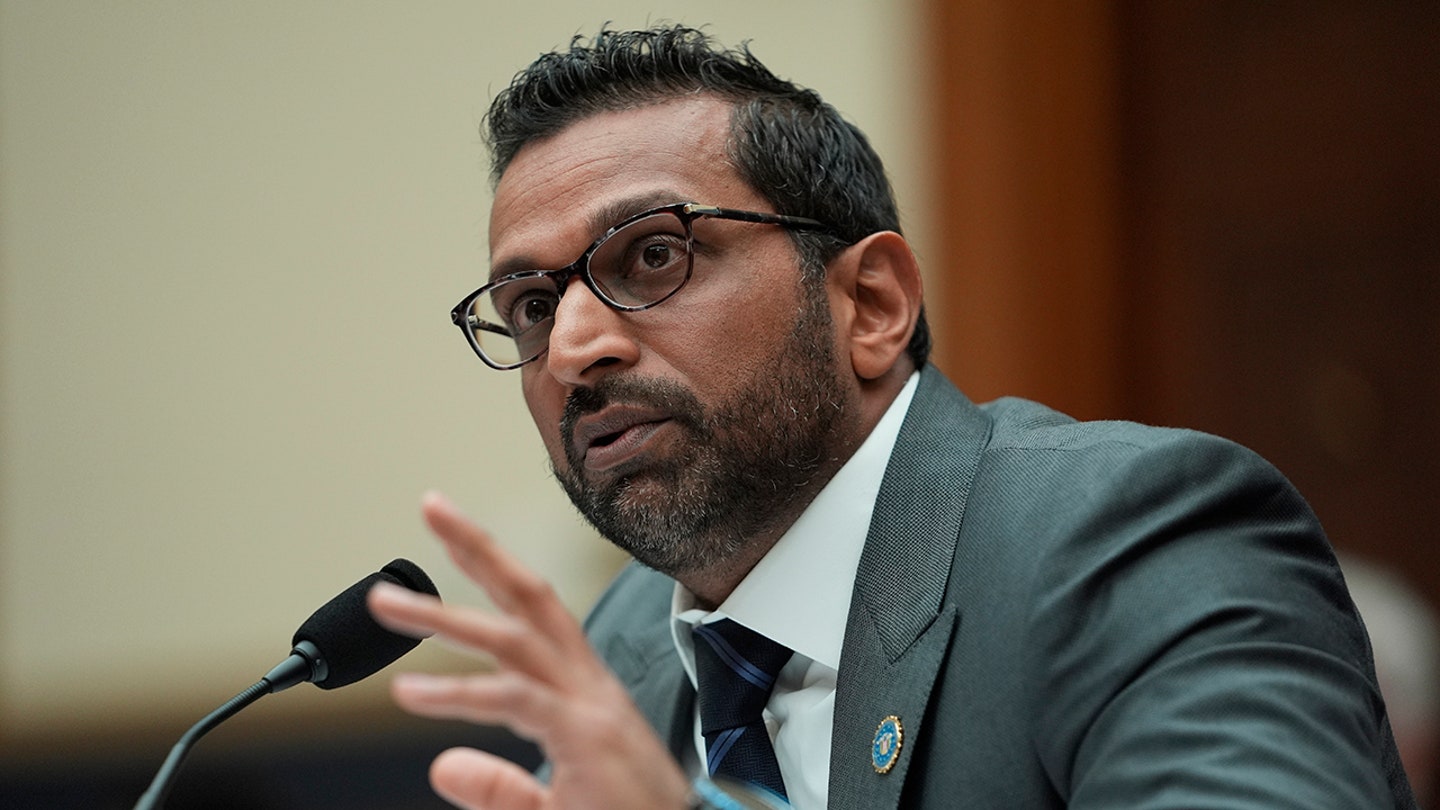
NBA legend Chauncey Billups, Heat's Terry Rozier arrested as part of FBI gambling probe
Entities mentioned:
- Chauncey Billups: Greed, Power, Self-preservation
- Terry Rozier: Greed, Self-preservation, Fear
- FBI: Justice, Duty, Professional pride
- NBA: Integrity, Self-preservation, Professional pride
- La Cosa Nostra: Greed, Power, Control
Article Assessment:
Credibility Score: 75/100
Bias Rating: 50/100 (Center)
Sentiment Score: 30/100
Authoritarianism Risk: 25/100 (Generally Democratic)
Bias Analysis:
The article presents multiple perspectives, including statements from law enforcement, the NBA, and a defense attorney. It balances accusations with responses, maintaining a relatively neutral stance.
Key metric: NBA League Integrity
Let me tell you something - this is a GAME-CHANGING PLAY in the world of professional basketball! The FBI has just pulled off a FULL COURT PRESS against corruption in the NBA, slamming down a MONSTER DUNK on illegal gambling operations. We're talking about a FOURTH QUARTER BLITZ that's left the league SCRAMBLING to protect its reputation. Billups and Rozier, once ALL-STAR CALIBER players, have been caught with their hands in the cookie jar, and now they're facing a FULL-COURT DEFENSE from federal prosecutors. This is a PIVOTAL MOMENT for the NBA - they need to step up to the free-throw line and sink some CLUTCH SHOTS to regain fan trust. The integrity of the game is on the line, folks, and it's looking like we're headed for OVERTIME in this high-stakes match between law enforcement and organized crime!

NCAA allows college athletes to bet on professional sports starting November 1
Entities mentioned:
- NCAA: Control, Adaptation, Professional pride
- Charlie Baker: Leadership, Adaptation, Wariness
- Roberta Page: Professional pride, Duty, Adaptation
- College Athletes: Freedom, Self-preservation, Anxiety
Article Assessment:
Credibility Score: 75/100
Bias Rating: 50/100 (Center)
Sentiment Score: 45/100
Authoritarianism Risk: 35/100 (Generally Democratic)
Bias Analysis:
The article presents a balanced view of the NCAA's decision, including both the rationale for the change and ongoing concerns. It quotes multiple perspectives without favoring one side, maintaining a centrist approach.
Key metric: NCAA Integrity and Compliance
Let me tell you something - this is a GAME-CHANGING play by the NCAA! They're calling an audible at the line of scrimmage, folks! The NCAA is stepping up to the plate and swinging for the fences with this rule change. It's like they're playing zone defense against the blitz of sports betting, allowing some yards on pro sports while still protecting the end zone of college athletics. But make no mistake, this is a high-stakes game and the NCAA is walking a tightrope. They're trying to thread the needle between adapting to the modern sports landscape and maintaining the integrity of the college game. It's fourth and long, and they're going for it! Will this Hail Mary pass pay off or will it fumble? Only time will tell, but I'm telling you right now, all eyes are on this play as it unfolds!

Miami Heat’s Terry Rozier, Trail Blazers head coach Chauncey Billups arrested in federal gambling probe, officials tell CNN
Entities mentioned:
- Chauncey Billups: Greed, Recognition, Influence
- Terry Rozier: Greed, Self-preservation, Competitive spirit
- Damon Jones: Greed, Recognition, Influence
- FBI: Justice, Duty, Professional pride
- NBA: Professional pride, Integrity, Control
Article Assessment:
Credibility Score: 75/100
Bias Rating: 50/100 (Center)
Sentiment Score: 25/100
Authoritarianism Risk: 30/100 (Generally Democratic)
Bias Analysis:
The article presents information from multiple perspectives, including law enforcement, the NBA, and defense attorneys. It balances accusations with responses, maintaining a relatively neutral stance.
Key metric: Professional Sports Integrity Index
Let me tell you something - this story is a GAME-CHANGER for the NBA! We're seeing a full-court press by the feds, folks, and they're not playing around. Billups and Rozier, once star players, are now facing their toughest opponents yet - the FBI and DOJ. This is a FOURTH QUARTER COLLAPSE for the league's reputation! The NBA thought it had a championship-caliber integrity program, but it looks like they've been caught flat-footed on defense. This gambling scandal is like a blindside block that could send the league's credibility into the locker room. Rozier's alleged prop bet shenanigans? That's like deliberately missing free throws to cash in - a FLAGRANT FOUL on the sport's integrity. And Billups using his All-Star status as bait? That's a DIRTY PLAY that'll have fans questioning every NBA legend. The league needs to step up to the plate and show they've got a KILLER INSTINCT when it comes to rooting out corruption, or they risk fumbling their whole season ticket to fan trust. This is crunch time for the NBA, and they better bring their A-game to clean house!

NBA coach and player among those arrested in massive mafia-linked sports rigging and gambling probe
Entities mentioned:
- Terry Rozier: Greed, Self-preservation, Fear
- Chauncey Billups: Greed, Influence, Pride
- NBA: Professional pride, Control, Integrity
- Mafia crime families: Greed, Power, Control
- FBI: Justice, Duty, Determination
Article Assessment:
Credibility Score: 75/100
Bias Rating: 50/100 (Center)
Sentiment Score: 25/100
Authoritarianism Risk: 30/100 (Generally Democratic)
Bias Analysis:
The article presents information from multiple official sources including the FBI, DOJ, and NBA. It includes direct quotes and details from court documents, suggesting a balanced approach to reporting the facts of the case.
Key metric: NBA League Integrity
Ladies and gentlemen, we've got a BOMBSHELL of a story here that's rocking the NBA to its very core! This is the kind of scandal that can change the game forever. We're talking about a full-court press by the FBI, taking on not just mob families, but star players and coaches who've been allegedly running plays straight out of the criminal playbook. Terry Rozier and Chauncey Billups, once heroes on the hardwood, are now facing their toughest defensive stand yet - against federal charges! This isn't just a foul, folks, this is a flagrant violation of everything sports stands for. The NBA's integrity is on the line here, and they're going to have to come up with a championship-caliber response to save face. We're in the fourth quarter of a game-changing moment for professional basketball, and I'm telling you right now, the final buzzer on this one is a long way off!

Roger Goodell stands firm on Bad Bunny Super Bowl halftime show after Trump calls selection 'ridiculous'
Entities mentioned:
- Roger Goodell: Determination, Professional pride, Unity
- Bad Bunny: Recognition, Influence, Self-respect
- Donald Trump: Moral outrage, Control, Influence
- NFL: Competitive spirit, Recognition, Unity
Article Assessment:
Credibility Score: 75/100
Bias Rating: 45/100 (Center)
Sentiment Score: 55/100
Authoritarianism Risk: 30/100 (Generally Democratic)
Bias Analysis:
The article presents multiple viewpoints, including those of Goodell, Trump, and Bad Bunny. While it leans slightly towards supporting the NFL's decision, it also includes criticism, maintaining a relatively balanced perspective.
Key metric: NFL Viewership
Let me tell you something, folks - this is a CLASSIC MATCHUP of old school versus new school! We've got the NFL and Goodell stepping up to the plate with a BOLD MOVE, bringing in Bad Bunny as their star player for the Super Bowl halftime show. But hold onto your helmets, because Trump is coming in with a FULL COURT PRESS, trying to block this play! This is the kind of high-stakes game that separates the champions from the also-rans. Goodell's showing a CHAMPIONSHIP MENTALITY, refusing to back down in the face of criticism. He's treating this like it's fourth and goal, folks - he KNOWS he needs to score big with viewers. Bad Bunny's bringing his A-game, ready to electrify that stadium like he's running a 99-yard touchdown. But Trump? He's playing DEFENSE, trying to tackle this decision before it even hits the field. It's a clash of titans, and I'm telling you right now, the scoreboard to watch is NFL viewership. This could be a GAME-CHANGER for the league's global appeal!

MLB has no update on Guardians gambling probe as World Series approaches
Entities mentioned:
- Major League Baseball: Control, Professional pride, Integrity
- Cleveland Guardians: Competitive spirit, Determination, Unity
- Luis Ortiz: Self-preservation, Anxiety, Fear
- Emmanuel Clase: Self-preservation, Anxiety, Fear
- Detroit Tigers: Competitive spirit, Pride, Ambition
- Los Angeles Dodgers: Competitive spirit, Ambition, Recognition
- Toronto Blue Jays: Competitive spirit, Ambition, Recognition
- Shohei Ohtani: Self-preservation, Professional pride, Legacy
Article Assessment:
Credibility Score: 75/100
Bias Rating: 50/100 (Center)
Sentiment Score: 35/100
Authoritarianism Risk: 25/100 (Generally Democratic)
Bias Analysis:
The article presents a balanced view of the situation, quoting official sources and providing context. It refrains from taking sides or making unsubstantiated claims about the ongoing investigation.
Key metric: MLB League Integrity
Let me tell you something - this story is RIDICULOUS! The Cleveland Guardians are in a league of their own, folks, pulling off a fourth-quarter comeback for the ages in the AL Central despite losing two star pitchers to a gambling probe. But just when they thought they had crossed the finish line, the Detroit Tigers came out of nowhere with a wild card knockout punch! Now, as we gear up for the World Series, the biggest curveball isn't coming from the mound - it's coming from the MLB front office! They're playing prevent defense on this gambling investigation, and I'm telling you right now, the clock is ticking! With superstars like Ohtani dodging foul balls off the field, the league needs to step up to the plate and show they've got a championship mentality when it comes to integrity. This isn't just about two pitchers anymore, folks - it's about the whole ballgame!
Minnesota Supreme Court rules ban of trans powerlifter from women's event was discrimination
Entities mentioned:
- Minnesota Supreme Court: Justice, Duty, Influence
- USA Powerlifting: Competitive spirit, Professional pride, Fairness
- JayCee Cooper: Competitive spirit, Justice, Recognition
- Minnesota Republicans: Moral outrage, Loyalty, Control
Article Assessment:
Credibility Score: 75/100
Bias Rating: 55/100 (Center)
Sentiment Score: 45/100
Authoritarianism Risk: 30/100 (Generally Democratic)
Bias Analysis:
The article presents multiple viewpoints, including the court's decision, USA Powerlifting's stance, and Republican opposition. While it leans slightly towards emphasizing the discrimination angle, it also includes counterarguments about fairness in sports.
Key metric: Gender Equality in Sports
Let me tell you something - this ruling is a GAME-CHANGER in the world of competitive sports! The Minnesota Supreme Court just threw a CURVEBALL that's going to shake up the entire powerlifting arena. USA Powerlifting thought they had a slam dunk with their exclusion policy, but the court just blew the whistle on that play! This isn't just about one athlete stepping up to the plate - it's about rewriting the entire rulebook of fair play. We're in the fourth quarter of a major civil rights match-up, and let me tell you, the stakes couldn't be higher. USA Powerlifting is going to have to pull out all the stops to prove they've got a legitimate game plan, or they might find themselves benched indefinitely. This is the kind of decision that separates the champions from the also-rans in the fight for equality. It's CRUNCH TIME, folks, and we're seeing a real test of championship mentality from all sides!

Pete Rose’s life in pictures
Entities mentioned:
- Pete Rose: Competitive spirit, Ambition, Recognition
- Major League Baseball: Professional pride, Control, Justice
- Rob Manfred: Duty, Legacy, Justice
Article Assessment:
Credibility Score: 85/100
Bias Rating: 50/100 (Center)
Sentiment Score: 60/100
Authoritarianism Risk: 30/100 (Generally Democratic)
Bias Analysis:
The article presents a balanced view of Rose's career and the recent decision. It includes both his achievements and controversies without favoring either side, maintaining a neutral stance.
Key metric: MLB Hall of Fame Induction Rate
Let me tell you something - this is a GAME-CHANGING play in the world of baseball! Pete Rose, the all-time hits leader, has been warming up in the bullpen of baseball purgatory for decades. Now, folks, we're seeing a dramatic fourth-quarter move by MLB Commissioner Rob Manfred, removing Rose from the permanently ineligible list. This opens up a whole new ballgame for the Charlie Hustle's Hall of Fame hopes! It's like Rose has been given one last at-bat in the bottom of the ninth. The question now is: will the Hall of Fame voters step up to the plate and give Rose the nod, or will they throw him a curveball? This is the kind of legacy-defining moment that separates the champions from the also-rans. I'm telling you right now, the sports world is on the edge of its seat, waiting to see if Pete Rose can pull off the ultimate comeback in this high-stakes game of baseball immortality!
- Read more about Pete Rose’s life in pictures
- Log in to post comments

Sports commentator Emily Austin kicks off podcast in hopes of 'open dialogue' for athletes to express politics
Entities mentioned:
- Emily Austin: Ambition, Influence, Freedom
- Andrew Cuomo: Power, Recognition, Legacy
- Donald Trump: Competitive spirit, Power, Influence
- Joe Biden: Control, Legacy, Power
- NBA players: Self-preservation, Professional pride, Freedom
Article Assessment:
Credibility Score: 70/100
Bias Rating: 65/100 (Lean Right)
Sentiment Score: 65/100
Authoritarianism Risk: 30/100 (Generally Democratic)
Bias Analysis:
The article leans right, featuring pro-Trump sentiments and anti-Biden rhetoric. It presents a conservative viewpoint on vaccine mandates and political expression, though it attempts to frame the podcast as a neutral platform.
Key metric: Political Engagement in Sports
Ladies and gentlemen, we're seeing a GAME-CHANGING play unfold right before our eyes! Emily Austin is stepping up to the plate with her new podcast, and let me tell you, she's swinging for the fences! This young rookie is mixing the playbooks of sports and politics like we've never seen before. She's creating an open field where athletes can run their political routes without fear of getting tackled by public opinion. It's fourth quarter for freedom of expression in sports, folks, and Austin is calling an audible that could change the whole ballgame! She's not just talking about bringing Republican athletes out of the locker room - she's providing a neutral turf where players from both teams can hash it out. This is the kind of championship mentality that could revolutionize the intersection of sports and politics!

Super Bowl champion's wife dishes on harsh realities of husband playing in NFL
Entities mentioned:
- Phillip Dorsett: Ambition, Competitive spirit, Professional pride
- Moriah Dorsett: Loyalty, Determination, Adaptability
- NFL: Competitive spirit, Power, Control
Article Assessment:
Credibility Score: 75/100
Bias Rating: 50/100 (Center)
Sentiment Score: 45/100
Authoritarianism Risk: 20/100 (Strongly Democratic)
Bias Analysis:
The article presents a balanced view of NFL life, sharing both challenges and opportunities. It relies on direct quotes and factual career information, maintaining a neutral stance.
Key metric: NFL Player Retention and Mobility
Let me tell you something - this story is the ULTIMATE game of musical chairs in the NFL! Phillip Dorsett is playing a high-stakes version of hot potato, bouncing from team to team like a running back dodging tackles. His wife Moriah? She's the real MVP, folks! She's got the agility of a wide receiver, making lightning-fast cuts and adjustments as she follows her husband's career across the league. This is a GRUELING endurance test, people! The NFL isn't just a sport, it's a relentless gauntlet that tests not only the players but their families too. Moriah's stepped up to the plate, becoming a professional mover in this high-pressure league where one minute you're settling in, and the next you're traded faster than a quick snap! I'm telling you right now, this is the kind of behind-the-scenes drama that makes the NFL a cutthroat business where only the toughest survive. It's fourth quarter, two-minute drill stuff EVERY SINGLE DAY for these families!